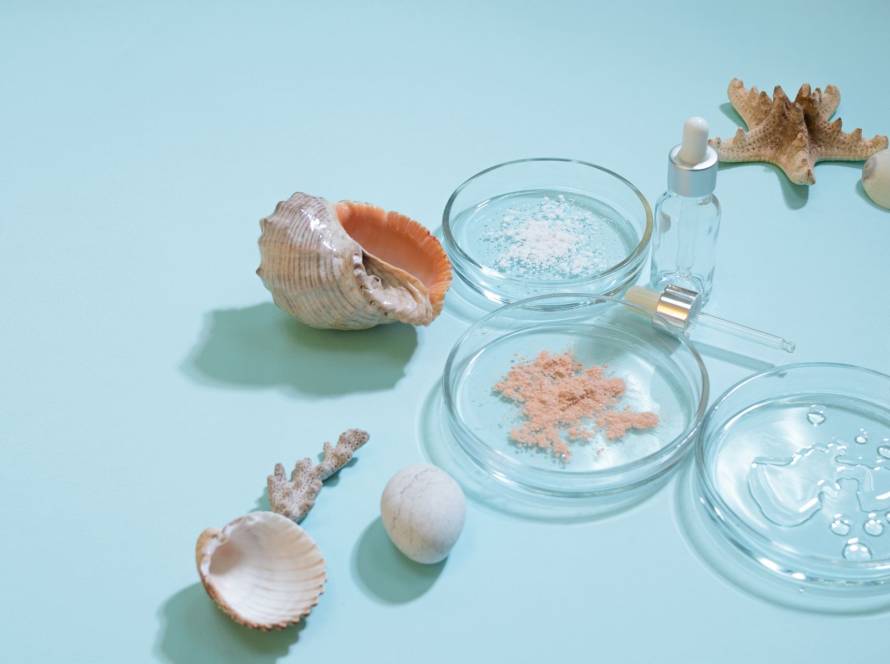Your guts health affects more than just digestion, it’s a vital part of athletic performance and overall wellness.
Let’s get into the science behind various gut health supplements and see how they perform in real life. This piece breaks down current research that will help you make smart choices about your digestive health support.
Understanding gut health basics
Your digestive system is home to a complex ecosystem of trillions of microorganisms, which is called the gut microbiome. These tiny inhabitants include over a thousand species of bacteria, viruses, fungi and parasites that work together with your body.
What makes a healthy gut
Think of a healthy gut microbiome as a well tended garden where good bacteria thrive among other microorganisms in perfect balance. These helpful microbes help break down complex carbohydrates and dietary fibers. They produce essential nutrients like short chain fatty acids and make vital vitamins including B1, B9, B12 and K.
Your gut has about 500 million neurons, making it the most complex neural network outside of your brain. A diverse bacterial population shows your gut is healthy. These microorganisms team up to keep your digestion smooth and boost your immune system. Your gut actually contains 70-80% of your body’s immune cells.
Signs of poor gut health
The delicate balance of gut bacteria can get disrupted, leading to several symptoms. Here are common signs that your gut health might be suffering:
- Digestive discomfort such as gas, bloating, constipation and diarrhea;
- Unexpected weight changes from nutrient absorption problems;
- Sleep problems and constant tiredness;
- Skin conditions like psoriasis;
- Food intolerances and trouble digesting.
An unbalanced gut microbiome might lead to autoimmune conditions and affect inflammation throughout your body. Changes in how your bowels work, especially without any diet changes, often point to gut health problems.
The gut brain connection
Your gut and brain talk to each other through a complex two way system called the gut-brain axis.
The vagus nerve acts as the main communication line between your guts nervous system and brain. Your gut bacteria make many neurotransmitters that affect how your brain works, including serotonin, which plays a big role in mood and emotional health.
New research shows the gut-brain connection can affect many aspects of health:
- Hunger and fullness signals;
- Brain health and memory;
- How you handle stress and emotions;
- How sensitive you are to pain;
- How your immune system works.
Your gut microbiome starts developing when you’re born and keeps changing throughout your life. Things like diet, stress, sleep quality and what you’re exposed to in your environment can affect your gut bacteria by a lot. Taking care of your gut microbiome through good nutrition and lifestyle choices helps both your physical and mental health.
Common gut health supplements
Dietary supplements are vital to support digestive wellness. You can benefit from them if you have specific enzyme deficiencies or gut related concerns. Let’s look at the most effective gut health supplements science supports.
Probiotics and their strains
The seven core genera of beneficial microbial organisms most often used in probiotic supplements include Lactobacillus, Bifidobacterium, Saccharomyces, Streptococcus, Enterococcus, Escherichia and Bacillus. These live bacteria help balance gut microbiota and improve immune function.
Prebiotics and fiber supplements
Prebiotic supplements contain carbohydrates that resist digestion and ferment in the colon. These supplements mix soluble and insoluble fibers that turn into viscous gels in water.
Digestive enzymes
Digestive enzyme supplements are a great way to get relief especially when you have specific food intolerances. Studies show that about 75% of people worldwide experience lactose intolerance.
Common digestive enzyme supplements include:
- Lactase: breaks down lactose in dairy products;
- Alpha-galactosidase: helps digest non absorbable fiber;
- Amylase: processes carbohydrates and starches;
- Protease: breaks down proteins;
- Lipase: helps fat digestion.
Glutamine and collagen
L-glutamine works as the main energy source for intestinal cells and supports gut microbiome health.
Collagen peptides contain amino acids glycine, glutamine and proline that support healthy bacteria balance in the gut microbiome. Recent studies show collagen supplementation improved bloating and intestinal discomfort significantly. 93% of participants reported reduced bloating and better bowel habits within about two days of taking collagen supplements.
Scientific evidence behind supplements
New meta analyzes tell us how gut health supplements work and what they can and cannot do. Let’s get into what science says about these supplements that more people use every day.
Clinical studies on probiotics
Meta analyzes of eight gastrointestinal diseases showed that probiotics work well with a relative risk of 0.58. Probiotics give the most important benefits to people with pouchitis, infectious diarrhea, irritable bowel syndrome and antibiotic associated diarrhea.
Studies found that probiotic supplements can make gut barrier function better in several ways. A newer study of 26 clinical trials with 1,891 participants showed improved intestinal barrier function and lower inflammation markers.
Research on prebiotics
Science shows prebiotics could help digestive wellness. Higher prebiotic intake relates to:
- Improved calcium absorption from food;
- Better blood sugar control;
- Improved immune system function;
- Lower risk of colorectal cancer.
A study showed that eating 30 grams of inulin rich foods daily for two weeks changed how participants picked their food. They started choosing lower calorie options. Brain scans showed less activity in reward centers when they looked at high calorie foods.
Different prebiotics boost specific gut bacteria. This makes it hard to predict results since changes happen at individual strain levels. Starting slowly with prebiotic supplements helps you avoid stomach problems.
Scientists agree that supplements work best with good nutrition, a prebiotic is not going to save the day from a bad diet.
Popular gut supplements reviewed
You need to understand proven benefits and limitations to pick the right supplements. Let’s get into popular options that science backs up.
Probiotic supplements
Spore based probiotics work remarkably well to balance gut bacteria and reduce inflammation. These soil based formulas survive harsh gut environments where traditional probiotics usually die off.
Your probiotic supplements need proper storage to stay potent. You should refrigerate liquid and dairy based products. Capsules and powders last longer when kept cool and dry.
Herbal supplements
New studies show traditional herbs can work as prebiotics to support gut health. Triphala, an Ayurvedic mix of three fruits, helps heal gut lining and improves how nutrients get absorbed. This blend reduces gastrointestinal distress, bloating and stomach discomfort.
Licorice root has compounds that ease stomach pain and curb harmful bacteria. Slippery elm makes bowel movements better for irritable bowel syndrome (IBS) patients and provides antioxidants that help with inflammatory bowel conditions.
Mineral supplements
Your digestive health depends on essential minerals. Magnesium works as a natural laxative by pulling water into your intestines, which makes stools softer and easier to pass.
Zinc makes your gut bacteria healthier and shortens how long diarrhea lasts. Low iron associates with gut problems like IBS, leading to tiredness and digestive issues. According to studies, the safe level of iron intake is 40 mg/day for adults, with lower levels for children and infants.
Vitamin D controls gut inflammation and might lower your risk of colon cancer. Vitamin C keeps your microbiome balanced, helps digestion and strengthens your gut barrier. To give your gut complete support, think about supplements with vitamin B12, they help make digestive enzymes and promote healthy gut bacteria.
The best results come from mixing carefully chosen supplements with basic dietary and lifestyle changes. These supplements aren’t quick fixes, they are a great way to get results as part of a detailed gut health plan. Of course, you should ask healthcare providers to make sure your supplement choices line up with your health goals and medical needs.
A healthy gut microbiome supports immune function, cognitive health and physical performance, that are key factors for longevity. Understanding and using gut health supplements wisely can enhance your quality of life and promote long term vitality.


